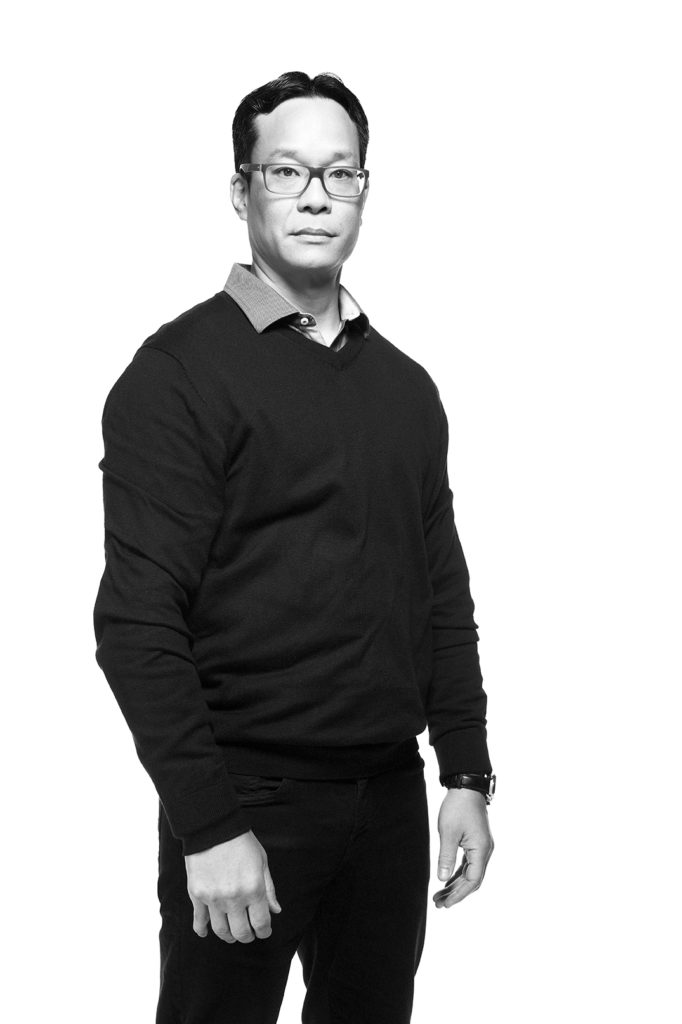
Eric Tong MBA ’93 is co-founder of Seatopia Collective, a subscription-based business offering sustainable farm-raised seafood direct to consumers. Aquaculture, as it is known, is responsible for more than 50% of the seafood consumed in the United States, with the remainder being wild-caught. Tong earned a master’s degree in business administration from the LMU College of Business Administration. He was interviewed by Editor Joseph Wakelee-Lynch.
Seatopia doesn’t raise the fish it offers but purchases fish from regenerative aquaculture farms. Are your sources international?
Yes, we have seven farms that are all international. We have Atlantic salmon and Atlantic halibut from Norway, kanpachi from Baja, Mexico, steel-head trout from Tasmania, Pacific king salmon from New Zealand, rainbow trout from England, and scallops from Peru. Also, we’re in conversations with a few new farms, some from the U.S.
There are significant issues in labeling and chain of custody verification in the fishing industry, leading even to mislabeled dishes you might order in a local restaurant. Do those concerns exist in aquaculture?
They do for some large, commercial fish farms, but we’re working exclusively with regenerative aquaculture farms that adhere to or exceed certification processes, including Best Aquaculture Practices and those of the Aquaculture Stewardship Council as well as the Seafood Watch program at the Monterey Bay Aquarium. They’re super focused on sustainability, types of feed, low-density pens, humane practices, etc. They’re on low Fish-In, Fish-Out (FIFO) diets, high in algae-based Omega-3s, and safe from environmental or commercial toxins. Our farm partners never use preventive antibiotics, hormones, unethical practices or GMO brood stock. We also test samples from every lot for the presence of the “big four metals” — cadmium, lead, arsenic and mercury. Less than 0.0 parts per million of mercury are found in our fish, ensuring super clean, high Omega-3 protein.
Are some fish a challenge for aquaculture while others are well-suited?
Fish such as tuna are difficult because they’re predator fish, and they need more space to swim. But salmon, trout, halibut and kanpachi work well in aquaculture.
Is artisan aquaculture a niche industry or do you foresee growth in the coming years?
It’s definitely going to grow. It’s growing now. Trends and market data have shown over the past 12 months that people are more comfortable buying seafood online, especially from companies having full transparency of their supply chain. Sustainable farms will garner greater awareness by the public, and Seatopia gives consumers a viable way to enjoy high-quality, clean seafood in the comfort of their homes.
Sustainability is a concern in the farming of the fish you sell, but what does responsibility mean in shipping the product?
We’re committed to shipping our product in a plastic-free box. We use
a compostable, thermal-insulated cooler. The bags and labels our seafood are sealed in are compostable as well. We use biodegradable ice-gel packs. We print on hemp paper. Our outer box uses soy inks. Above and beyond that, we donate 1% of our sales to the preservation of Marine Protected Areas. We’re a start-up, so that 1% is not sizable yet, but we hope that in the future we can do great things with those donations.
What is the biggest challenge you face as a start-up — identifying supply sources or breaking through a crowded home-delivery marketplace?
We’ve done an outstanding job on the former — partnering with the best farms and expanding our offering with more species. At the beginning, we wanted to ensure that the user experience — from the out-of-box experience to cooking and tasting — met the mark. We think we’ve achieved that. Now, we’re trying to scale. That’s where the challenge comes in. We’re trying to be scrappy with our marketing dollars working with influencers and ambassadors, running various promotions, and setting up affiliate programs. Being a small company with two people, the biggest challenge for us is to get more eyeballs to our website, seatopia.fish, and create more brand awareness. Every two weeks, we’re growing. But soon we’re going to raise capital, which will allow us to increase brand awareness and drive more sales at an exponential level.
